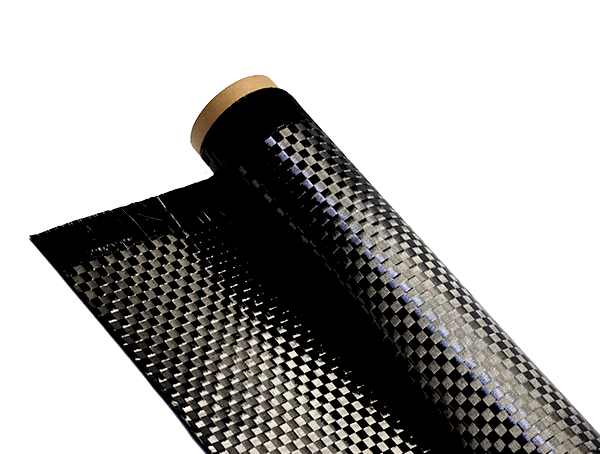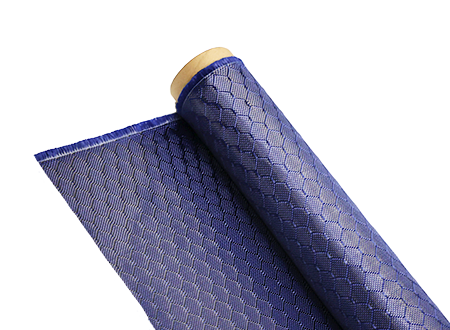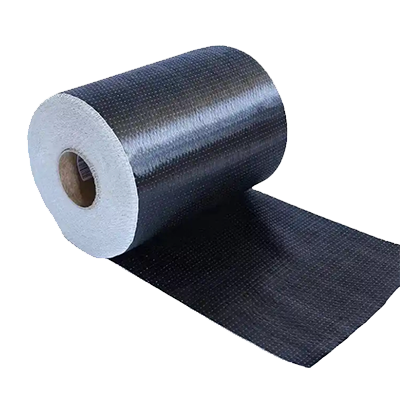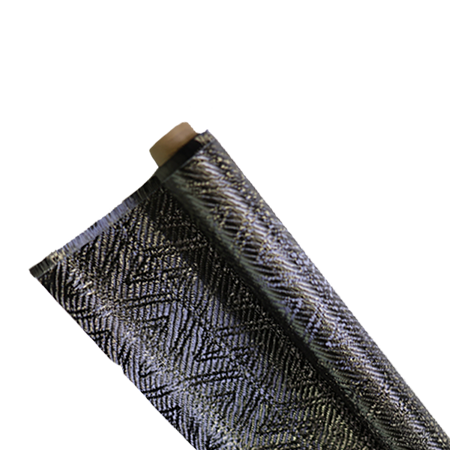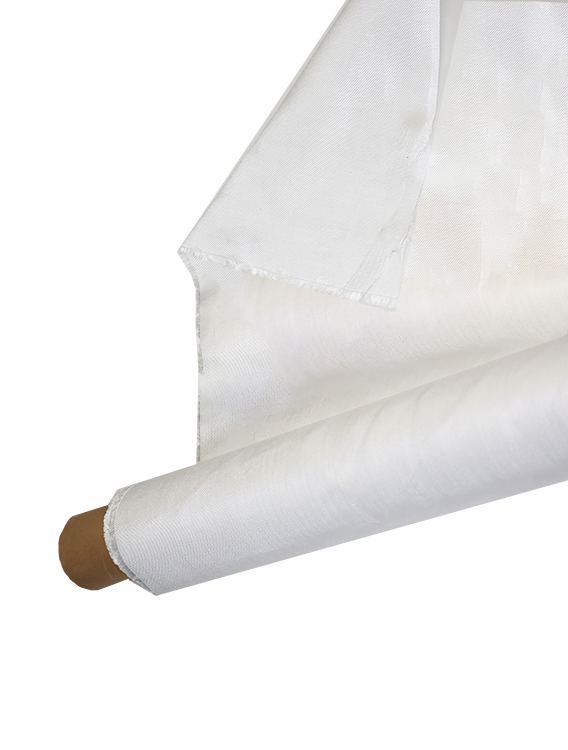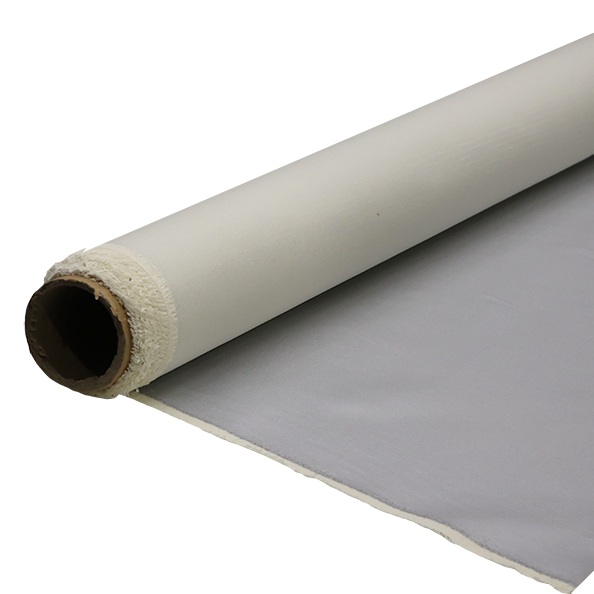Unleashing Strength: The Transformative Power of Fiberglass Fabric
-
Table of Contents
“Glass Fiber Fabric: Revolutionizing Lightweighting for EV Battery Casings.”
Introduction
Glass fiber fabric is increasingly being utilized in the automotive industry, particularly for electric vehicle (EV) battery casings, due to its lightweight properties and high strength-to-weight ratio. As the demand for more efficient and sustainable vehicles grows, manufacturers are turning to advanced composite materials like glass fiber to reduce overall vehicle weight, enhance energy efficiency, and improve performance. The use of glass fiber fabric in battery casings not only contributes to the structural integrity and safety of EVs but also aids in thermal management and impact resistance. This innovative approach aligns with the industry’s shift towards lightweighting, ultimately supporting the transition to greener transportation solutions.
Advantages of Fiberglass Fabric in Lightweight EV Battery Casings
The automotive industry is undergoing a significant transformation, particularly with the rise of electric vehicles (EVs) that prioritize efficiency and sustainability. One of the critical components in this evolution is the design and construction of battery casings, which must balance safety, performance, and weight. In this context, glass fiber fabric has emerged as a highly advantageous material for lightweight EV battery casings, offering a range of benefits that enhance the overall functionality and efficiency of electric vehicles.
To begin with, the lightweight nature of Fiberglass Fabric plays a pivotal role in improving the energy efficiency of EVs. Traditional materials, such as metals, can add considerable weight to the vehicle, which in turn requires more energy to operate. By incorporating glass fiber fabric into battery casing designs, manufacturers can significantly reduce the overall weight of the vehicle. This reduction in weight not only enhances the vehicle’s range but also contributes to improved acceleration and handling, making for a more responsive driving experience. Consequently, the use of Fiberglass Fabric aligns with the overarching goal of maximizing the efficiency of electric vehicles.
Moreover, Fiberglass Fabric is known for its exceptional strength-to-weight ratio. This characteristic is particularly important in the context of battery casings, which must provide robust protection for the sensitive components housed within. The durability of fiberglass ensures that the battery is safeguarded against potential impacts and environmental factors, thereby enhancing the overall safety of the vehicle. In addition, the inherent resistance of fiberglass to corrosion and degradation further extends the lifespan of the battery casing, reducing the need for frequent replacements and maintenance. This longevity not only benefits manufacturers by lowering production costs but also provides consumers with a more reliable and durable product.
In addition to its mechanical properties, Fiberglass Fabric offers excellent thermal management capabilities. Effective thermal regulation is crucial for EV battery performance, as overheating can lead to reduced efficiency and even safety hazards. Glass fiber fabric can be engineered to provide effective insulation, helping to maintain optimal operating temperatures within the battery casing. This thermal stability not only enhances the performance of the battery but also contributes to the overall safety of the vehicle, as it minimizes the risk of thermal runaway incidents. Thus, the integration of Fiberglass Fabric into battery casing designs serves a dual purpose: it enhances performance while simultaneously ensuring safety.
Furthermore, the versatility of Fiberglass Fabric allows for innovative design possibilities. Manufacturers can easily mold and shape fiberglass into complex forms, enabling the creation of battery casings that are not only lightweight but also aerodynamically efficient. This adaptability can lead to improved vehicle designs that further enhance energy efficiency and performance. Additionally, the aesthetic potential of Fiberglass Fabric allows for a range of finishes and appearances, catering to consumer preferences and market trends.
In conclusion, the advantages of glass fiber fabric in lightweight EV battery casings are manifold. Its lightweight nature contributes to improved energy efficiency, while its strength and durability ensure robust protection for critical components. The thermal management capabilities of fiberglass enhance battery performance and safety, and its versatility allows for innovative design solutions. As the automotive industry continues to embrace electric vehicles, the role of Fiberglass Fabric in battery casing construction will undoubtedly become increasingly significant, driving advancements in both technology and sustainability.
The Role of Glass Fiber Fabric in Enhancing EV Performance

The automotive industry is undergoing a significant transformation, particularly with the rise of electric vehicles (EVs) that prioritize efficiency and sustainability. One of the critical aspects of enhancing EV performance lies in the materials used for various components, especially battery casings. In this context, glass fiber fabric has emerged as a pivotal material, offering a unique combination of lightweight properties and structural integrity that is essential for modern electric vehicles. By integrating glass fiber fabric into battery casings, manufacturers can achieve substantial weight reductions, which directly contribute to improved energy efficiency and overall vehicle performance.
To begin with, the lightweight nature of glass fiber fabric plays a crucial role in the design of EV battery casings. Traditional materials, such as metals, while strong, often add unnecessary weight to the vehicle. This added weight can lead to increased energy consumption, as more energy is required to propel a heavier vehicle. In contrast, glass fiber fabric provides a robust alternative that significantly reduces the overall weight of the battery casing without compromising safety or durability. This reduction in weight is particularly beneficial for electric vehicles, where every kilogram saved can enhance the vehicle’s range and efficiency, allowing for longer journeys on a single charge.
Moreover, the structural properties of glass fiber fabric contribute to the overall performance of EVs. The material exhibits excellent tensile strength and resistance to impact, which are essential characteristics for protecting sensitive battery components. As electric vehicles are often subjected to various environmental conditions and potential collisions, the durability provided by glass fiber fabric ensures that the battery remains secure and functional. This reliability not only enhances the safety of the vehicle but also extends the lifespan of the battery, reducing the need for frequent replacements and thereby promoting sustainability.
In addition to its mechanical advantages, glass fiber fabric also offers thermal management benefits that are vital for electric vehicle performance. Battery systems generate heat during operation, and effective thermal management is crucial to maintaining optimal performance and preventing overheating. Glass fiber fabric can be engineered to provide thermal insulation, helping to regulate the temperature within the battery casing. By maintaining an appropriate temperature range, manufacturers can enhance battery efficiency and longevity, ultimately leading to improved vehicle performance and user satisfaction.
Furthermore, the versatility of glass fiber fabric allows for innovative design possibilities in the automotive sector. Manufacturers can easily mold and shape the fabric to fit various battery designs, enabling more efficient use of space within the vehicle. This adaptability not only aids in optimizing the layout of the battery system but also allows for the integration of additional features, such as cooling systems or safety mechanisms, that can further enhance performance.
As the automotive industry continues to evolve towards electrification, the role of materials like glass fiber fabric becomes increasingly significant. By leveraging its lightweight properties, structural integrity, and thermal management capabilities, manufacturers can create battery casings that not only meet the demands of modern electric vehicles but also contribute to a more sustainable future. In conclusion, the integration of glass fiber fabric in automotive applications, particularly in EV battery casings, represents a forward-thinking approach to enhancing vehicle performance while addressing the pressing challenges of weight reduction and energy efficiency. As the industry moves forward, the continued exploration and application of advanced materials will undoubtedly play a crucial role in shaping the future of electric mobility.
Innovations in Fiberglass Fabric Technology for Automotive Applications
The automotive industry is undergoing a significant transformation, particularly with the rise of electric vehicles (EVs) and the increasing demand for lightweight materials that enhance performance and efficiency. One of the most promising advancements in this realm is the development of glass fiber fabric technology, which has emerged as a critical component in the design and manufacturing of EV battery casings. This innovation not only contributes to the reduction of overall vehicle weight but also offers enhanced durability and safety, making it an ideal choice for modern automotive applications.
Glass fiber fabric, known for its high strength-to-weight ratio, is increasingly being utilized in the production of battery enclosures. This material is composed of fine glass fibers woven together to create a lightweight yet robust fabric that can withstand the rigors of automotive environments. As manufacturers strive to improve the energy efficiency of electric vehicles, the need for materials that can reduce weight without compromising structural integrity has become paramount. The incorporation of glass fiber fabric into battery casings addresses this need effectively, allowing for a significant reduction in weight compared to traditional metal enclosures.
Moreover, the advancements in fiberglass technology have led to the development of specialized coatings and treatments that enhance the performance characteristics of glass fiber fabrics. These innovations include improved resistance to heat, moisture, and chemical exposure, which are critical factors in the automotive sector. For instance, the ability of glass fiber fabric to withstand high temperatures is particularly beneficial for EV battery applications, where thermal management is essential for maintaining optimal performance and safety. By utilizing advanced fiberglass materials, manufacturers can ensure that battery casings remain intact and functional even under extreme conditions.
In addition to their lightweight properties and enhanced durability, glass fiber fabrics also offer significant design flexibility. This versatility allows automotive engineers to create complex shapes and structures that can optimize space within the vehicle while maintaining aesthetic appeal. As the design of electric vehicles continues to evolve, the ability to integrate lightweight materials like glass fiber fabric into innovative designs will play a crucial role in shaping the future of automotive engineering. Furthermore, the use of fiberglass in battery casings can facilitate easier integration with other components, such as cooling systems and electronic controls, thereby enhancing overall vehicle performance.
Another noteworthy aspect of glass fiber fabric technology is its potential for sustainability. As the automotive industry increasingly focuses on reducing its environmental impact, the use of recyclable materials has gained prominence. Glass fiber fabrics can be produced using sustainable practices, and their recyclability at the end of their lifecycle aligns with the industry’s shift towards more eco-friendly solutions. This not only helps in minimizing waste but also contributes to the overall sustainability goals of electric vehicle manufacturers.
In conclusion, the innovations in glass fiber fabric technology are revolutionizing the automotive sector, particularly in the context of electric vehicles and their battery casings. By providing a lightweight, durable, and versatile material, fiberglass is enabling manufacturers to meet the demands of modern automotive design while also addressing critical issues related to performance and sustainability. As the industry continues to evolve, the role of glass fiber fabric will undoubtedly expand, paving the way for more efficient and environmentally friendly vehicles in the future. The ongoing research and development in this field promise to unlock even greater potential, ensuring that glass fiber remains at the forefront of automotive innovation.
Q&A
1. **Question:** What are the benefits of using glass fiber fabric in EV battery casings?
**Answer:** Glass fiber fabric provides lightweighting, high strength, and excellent thermal resistance, which enhances the overall efficiency and safety of EV battery casings.
2. **Question:** How does glass fiber fabric contribute to the lightweighting of automotive components?
**Answer:** Glass fiber fabric is significantly lighter than traditional materials like metals, allowing for reduced overall vehicle weight, which improves energy efficiency and extends the range of electric vehicles.
3. **Question:** What manufacturing processes are commonly used to incorporate glass fiber fabric into EV battery casings?
**Answer:** Common manufacturing processes include resin transfer molding (RTM), vacuum infusion, and compression molding, which allow for the effective integration of glass fiber fabric into the structural design of battery casings.

